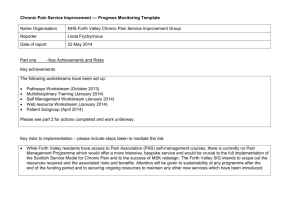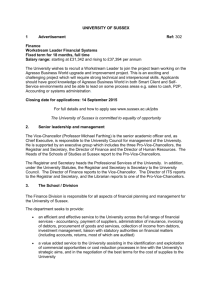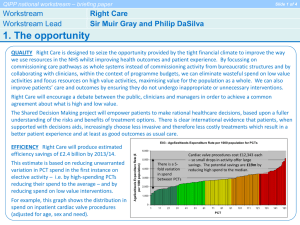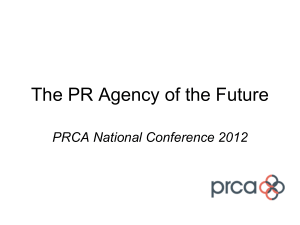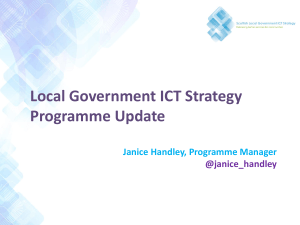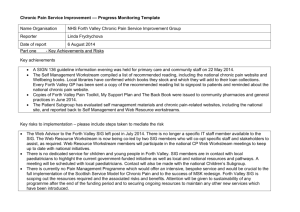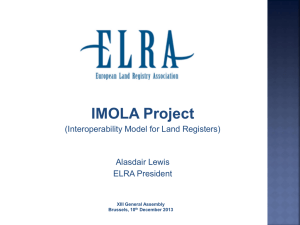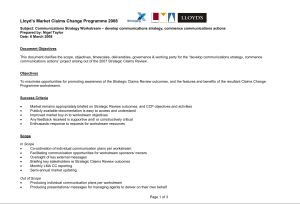Dear Colleagues - Royal College of Psychiatrists
advertisement
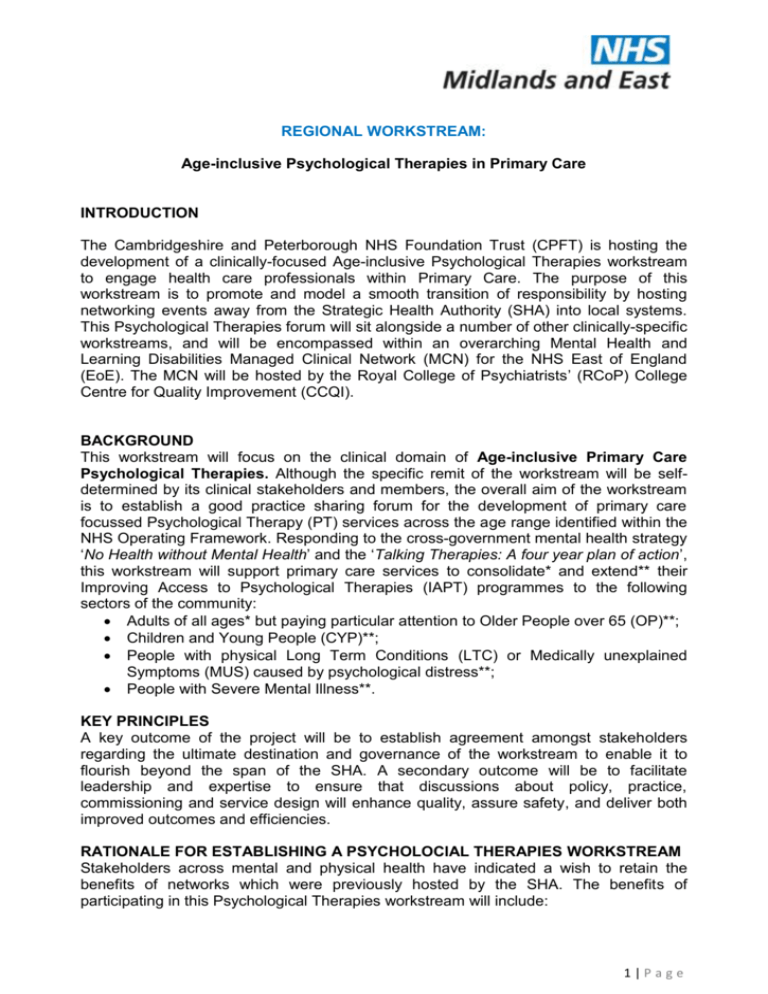
REGIONAL WORKSTREAM: Age-inclusive Psychological Therapies in Primary Care INTRODUCTION The Cambridgeshire and Peterborough NHS Foundation Trust (CPFT) is hosting the development of a clinically-focused Age-inclusive Psychological Therapies workstream to engage health care professionals within Primary Care. The purpose of this workstream is to promote and model a smooth transition of responsibility by hosting networking events away from the Strategic Health Authority (SHA) into local systems. This Psychological Therapies forum will sit alongside a number of other clinically-specific workstreams, and will be encompassed within an overarching Mental Health and Learning Disabilities Managed Clinical Network (MCN) for the NHS East of England (EoE). The MCN will be hosted by the Royal College of Psychiatrists’ (RCoP) College Centre for Quality Improvement (CCQI). BACKGROUND This workstream will focus on the clinical domain of Age-inclusive Primary Care Psychological Therapies. Although the specific remit of the workstream will be selfdetermined by its clinical stakeholders and members, the overall aim of the workstream is to establish a good practice sharing forum for the development of primary care focussed Psychological Therapy (PT) services across the age range identified within the NHS Operating Framework. Responding to the cross-government mental health strategy ‘No Health without Mental Health’ and the ‘Talking Therapies: A four year plan of action’, this workstream will support primary care services to consolidate* and extend** their Improving Access to Psychological Therapies (IAPT) programmes to the following sectors of the community: Adults of all ages* but paying particular attention to Older People over 65 (OP)**; Children and Young People (CYP)**; People with physical Long Term Conditions (LTC) or Medically unexplained Symptoms (MUS) caused by psychological distress**; People with Severe Mental Illness**. KEY PRINCIPLES A key outcome of the project will be to establish agreement amongst stakeholders regarding the ultimate destination and governance of the workstream to enable it to flourish beyond the span of the SHA. A secondary outcome will be to facilitate leadership and expertise to ensure that discussions about policy, practice, commissioning and service design will enhance quality, assure safety, and deliver both improved outcomes and efficiencies. RATIONALE FOR ESTABLISHING A PSYCHOLOCIAL THERAPIES WORKSTREAM Stakeholders across mental and physical health have indicated a wish to retain the benefits of networks which were previously hosted by the SHA. The benefits of participating in this Psychological Therapies workstream will include: 1|Page Developing clinical leadership, engagement and expertise to inform the commissioning and delivery of services; Promoting transparency, openness and accountability in the commissioning and delivery of health and social care services; Ensuring the effective implementation of national policy and guidance; Promoting seamless age-inclusive patient care with the objectives of prevention, health promotion and early intervention to improve the population’s health and wellbeing; Agreeing common principles, protocols and pathways to guide practice and services; Integrating care across existing professional and health-care boundaries; Recognising the diversity of professional contributions; Promoting more equitable service provision for patients; Supporting the dissemination of good practice across the East of England. Stakeholders An over-arching principle of establishing this workstream will be the adoption of a multidisciplinary and multi-professional approach, which includes (but is not limited to): Clinicians and managers from mental health, physical health and social care provider organisations in the statutory, third and private sectors; Health and social care commissioners from current and emerging commissioning organisations (e.g. local authorities, PCTs and CCGs), and the NHS commissioning board; Education and training providers; Service users and carers. Functions The primary function of this workstream will be to support primary care service development and innovation by the sharing of information and knowledge. Hosted workstream events will build capacity and capability for working with all sectors of IAPT client groups through the sharing of: Evidence-based practice; Information, good practice, training and education; Outcomes of clinical audit, service evaluations and research. This Psychological Therapies workstream will provide opportunities to examine and discuss key initiatives and projects to: Ensure practice is in line with Department of Health Key Performance Indicators; Evaluate the implementation and impact of Payment by Results (PbR); Disseminate the outcomes of service evaluations and pilots involving OP and CYP, as well as service users with LTC, MUS and SMI; Deliver services in primary care community settings rather than in hospitals; Provide strategic leadership by bringing together members to plan and monitor service commissioning with regards to the implementation of local action plans; Provide a systematic overview of the health and social care needs of the population; Promote equality and diversity. 2|Page Activities (to be agreed): This workstream will utilise a range of activities to ensure the effective sharing of information, knowledge and skills, including hosted quarterly meetings, work-stream themed workshops and training events. A regional conference will also be hosted that will involve nationally recognised key note speakers, as well as a broad range of practical and clinically-focused learning events and master-classes which delegates can elect to attend. In addition, the workstream will employ e-platforms and forums to collate relevant resources in order to signpost: Affiliated national, regional and local networks or workstreams; Outcomes of on-going clinical / research projects; Relevant educational and training materials; Regional experts. Membership (to be agreed): Clinical, manager and administration representatives - mental health trusts; High Intensity (CBT) therapists and Psychological Wellbeing Practitioners; NHS and local authority commissioners from each PCT cluster; GP mental health and community leads (CCG); Service users and carers; Community pharmacist; Private and third sector provider representatives; Academic partners, including the Academic Health Science Network (AHSN) and the Collaboration for Leadership in Applied Health Research and Care (CLAHRC). Nicola Biggs Assistant Psychologist: Clinical Workstream Coordinator Regional Workstream for Age-inclusive Psychological Therapies in Primary Care nicola.biggs@cpft.nhs.uk Krishna Singh Clinical Director and Consultant Clinical Psychologist Primary Care and Liaison Psychiatry Division 3|Page
